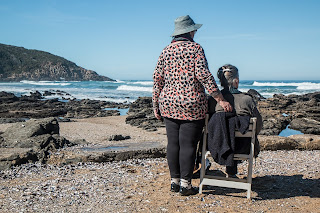The bodies and minds of people change as they grow older. One in three people between the ages of 65 and 74 experience hearing loss; additionally, fifty percent of those older than 75 are subject to hearing problems. If you have suspicions that your elderly loved one has hearing problems, start a conversation with them. Though hearing loss can be a sensitive topic to bring up, it is necessary.
It is important to have a conversation with your loved one if you start to have suspicions that their hearing is fading. If you are not sure how to adjust to their new needs at home, contact Visiting Angels Punta Gorda. Visiting Angels can provide professional living assistance services for the elderly in the comfort of their own home.
Talking About Hearing Loss
A conversation discussing the possibility that a loved one could be losing their hearing can be difficult. What time is a good time to bring it up? Do they know their hearing is fading? Will they be devastated? More likely than not, your loved one already knows their hearing is worsening. They could have noticed a while ago and decided not to bring it up because they are not emotionally or mentally ready to deal with that reality. Furthermore, bringing up a sensitive topic about their hearing should not be rushed. Instead of bluntly telling them that their hearing is fading when you first notice, you should wait for a better moment. Telling them in a relaxed or soothing environment will make your elderly loved one feel less defensive.How to Talk About Hearing Loss With Your Loved One
Your first instinct when talking about your loved one’s hearing loss might be to bring up doctors and hearing aids; however, it would be for the best to go against that instinct. Your elderly loved one might still be struggling to accept that their hearing is fading. When discussing hearing loss, be considerate, direct, and honest. Ask them how they feel about their hearing fading and how they are affected by it. Maybe your loved one is no longer as actively involved in conversations as they want to be. They could feel like they are missing out in important information when others talk to them. Overall, do not make the conversation feel like an intervention. Listen to how your elderly loved one is feeling and slowly transition to solutions to the problem.One Conversation Is Not The End
Although hearing loss cannot be reversed, there are hearing aids that an audiologist can prescribe to you. Hearing aids are small devices that rest inside your ear; they make sounds louder and come in a variety of designs. There are also suggestions that can help with coping with hearing loss. The simplest approach would be to advise your elderly loved to face people when talking and to ask others to speak with a clearer and slightly louder voice. Quiet places are also great listening locations. In the end, if your loved one struggles to hear someone or keep up in a conversation, let them know that they can voice their struggles and ask people to repeat what they said. Patience and clarity are features your elderly loved one will appreciate.It is important to have a conversation with your loved one if you start to have suspicions that their hearing is fading. If you are not sure how to adjust to their new needs at home, contact Visiting Angels Punta Gorda. Visiting Angels can provide professional living assistance services for the elderly in the comfort of their own home.
